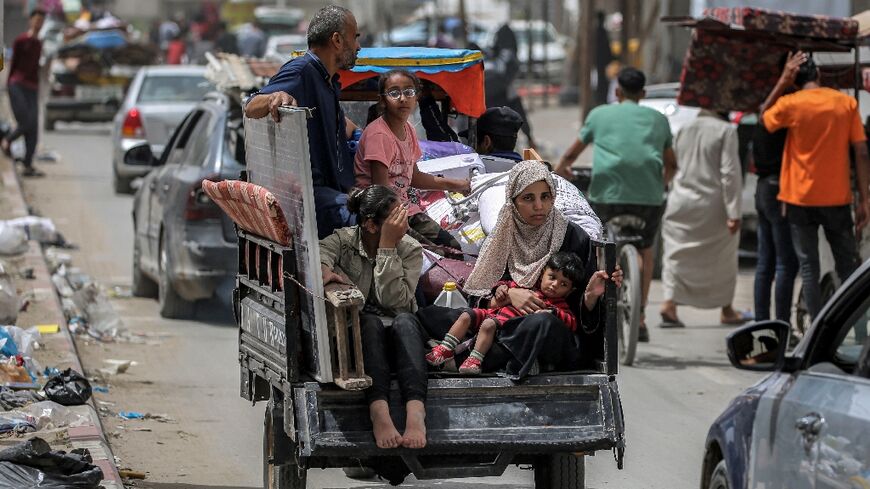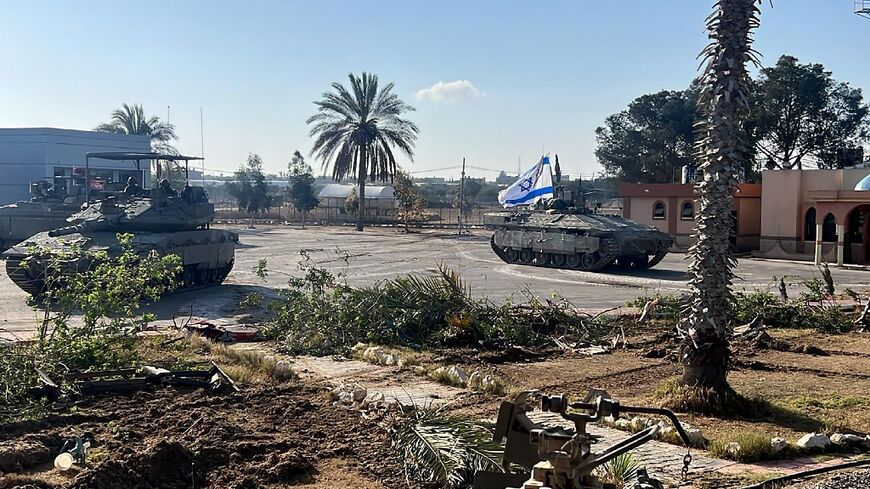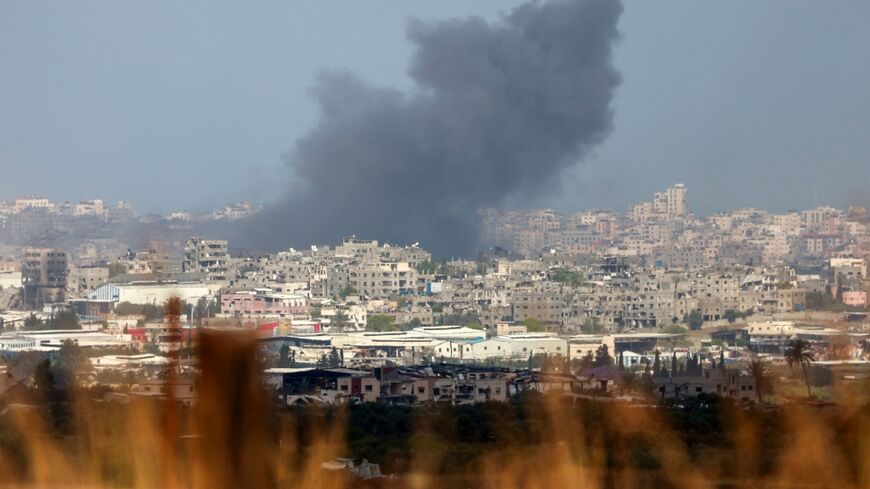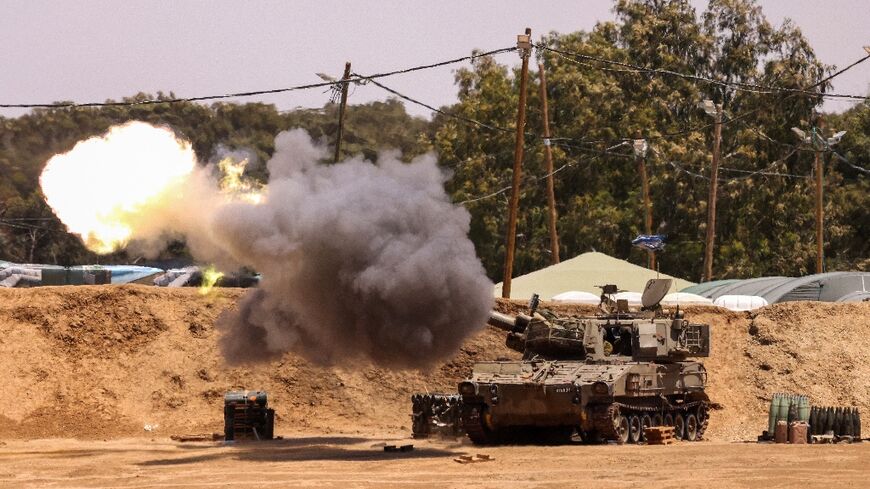Israel ramps up attacks on northern Gaza as 60,000 flee Rafah
As the Israeli military expanded its operation in Rafah, the government faced strident criticism over its failures on and since Oct. 7 at Memorial Day observances around the country.
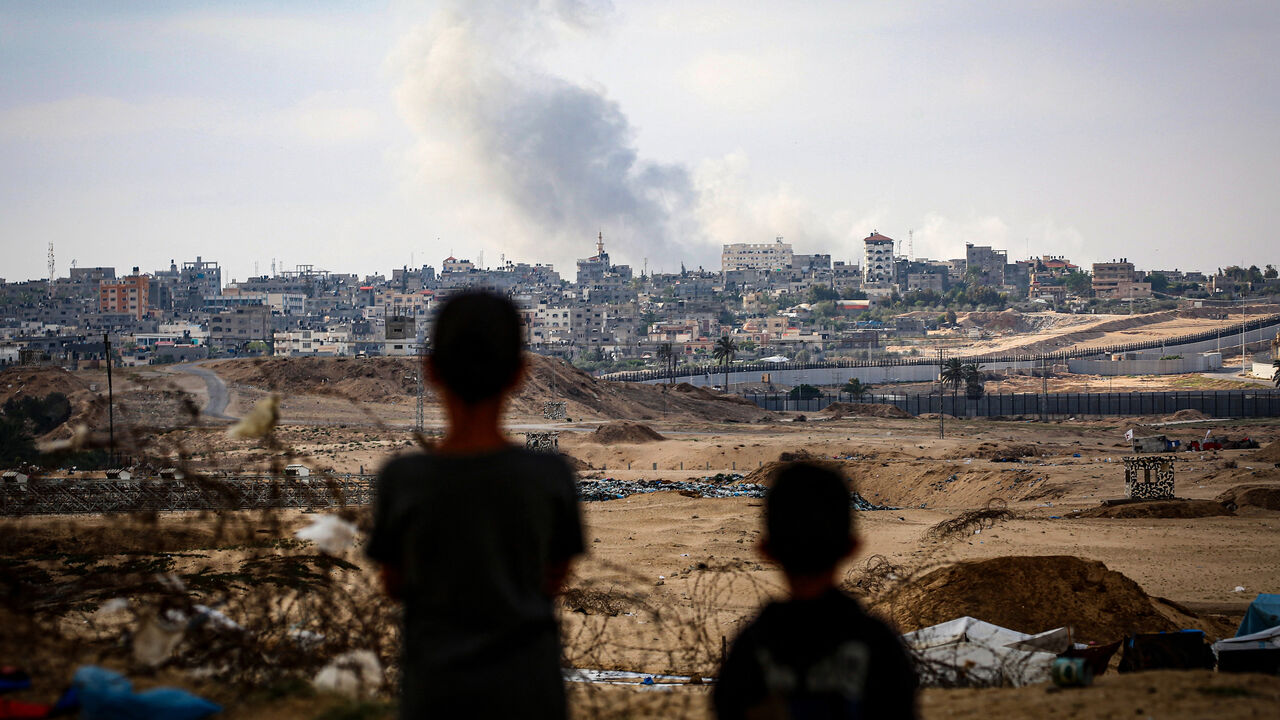
The Israeli military has stepped up strikes in northern and central Gaza as well as in the southern city of Rafah, where it ordered more neighborhoods to evacuate to designated safe zones over the past 24 hours.
The Israel Defense Forces has told Palestinians in specific neighborhoods in east Rafah to evacuate west to the al-Muwasi neighborhood near the coast.
UNRWA said Monday morning that nearly 360,000 people have fled Rafah since the first evacuation order by the Israeli military a week ago, 60,000 of them in the past 24 hours. As Israel's bombardment in the southernmost city appears to be intensifying, local health officials in Gaza said 57 people were killed in the past day.
Meanwhile, the UN confirmed Monday that a staff member had been killed and a local driver injured by shelling near the Rafah crossing. Israel's state broadcaster Kan reported earlier that the IDF is investigating whether the injuries were caused by Israeli or Hamas fire. The news comes as the IDF said its air force struck 120 targets in Gaza over the past 24 hours, without detailing the locations of the strikes.
Israeli operations resume in northern Gaza
The IDF is also operating in the town of Jabalia in the north of the Strip and in the neighborhood of Zeitoun south of Gaza City. IDF spokesperson Daniel Hagari said Saturday, "We have identified in recent weeks attempts by Hamas to restore its military capabilities in Jabalia and the IDF is working to dismantle them."
On Saturday the IDF dropped flyers in Zeitoun and Jabalia and contacted residents by SMS, telling them to evacuate to designated safe zones in Gaza City.
The renewed operation in Jabalia and Zeitoun, areas in which the Israeli military said Hamas had previously been defeated, are drawing attention to the Netanyahu government's lack of planning for postwar governance in the Gaza Strip.
Israel's Channel 13 reported Saturday that during security briefings with Prime Minister Benjamin Netanyahu, IDF Chief of Staff Herzi Halevi expressed his frustration with the political echelon for not presenting a plan for the day after the Gaza war. "As long as there is no political/diplomatic move that will generate a non-Hamas governing body in the Strip, we will have to operate again and again there and in other places to dismantle Hamas infrastructure," Channel 13 quoted Halevi as saying. Neither Halevi nor the Israeli government confirmed that such an exchange took place.
Meanwhile, US officials continue to voice strong opposition to an operation in Rafah. Secretary of State Antony Blinken spoke Sunday with Israeli Defense Minister Yoav Gallant, reiterating American objections to a large-scale operation in Rafah. Blinken "reaffirmed the US opposition to a major military ground operation in Rafah, where over one million people have taken shelter," according to a statement issued by the State Department afterward, adding, "The secretary underscored the urgent need to protect civilians and aid workers in Gaza and urged the minister to ensure assistance can move into Gaza and help address distribution challenges inside of Gaza as Israel pursues Hamas targets."
A statement issued by Gallant’s office after the call said the two had discussed “developments in Gaza, including IDF operations across the Strip in the face of terror hotspots and the precise operation in the Rafah area against remaining Hamas battalions, while securing the crossing,” referring to the area between Egypt and Gaza. Israeli troops took control of the Gaza side of the crossing last week.
According to Israeli public broadcaster Kan, Gallant spoke with Secretary of Defense Lloyd Austin Monday on developments in Gaza. No further details have so far been provided.
US Ambassador to Israel Jacob Lew, meanwhile, sought to downplay tensions between the Biden administration and the Netanyahu government, arguing that there have been no fundamental changes in the bilateral relationship. "We have had conversations about large-diameter bombs, heavy bombs, particularly when there's the possibility of them being used in densely populated urban areas, and that's something we need to keep talking about. But I think it's a mistake to think anything's fundamentally changed in the relationship," Lew said in an interview with Israel's Channel 12.
In a sign of Cairo's mounting frustration with the situation in Rafah, Egypt said over the weekend it would join South Africa's petition against Israel at the International Court of Justice, accusing the Israeli military of committing genocide in Gaza. In a phone conversation with Blinken on Monday, Egypt’s Foreign Minister Sameh Shoukry said that Israel's operation in Rafah poses a "grave security" threat to Egypt.
On Sunday Israel opened a new crossing point into the north of the Gaza Strip, Erez West, even though construction was not yet complete, to humanitarian aid trucks. Gazan health authorities warned that without more fuel, the whole health system in the Strip was expected to collapse within hours. The IDF said Sunday that seven tankers carrying 266,000 liters of fuel were transferred to Gaza that day through the Kerem Shalom Crossing near the Egyptian border.
On Monday, dozens of Jewish activists near the West Bank city of Hebron blocked humanitarian aid trucks heading for the Gaza Strip and toppled some of the cargo. They were calling on the government not to deliver humanitarian aid to Gaza as long as the hostages remain captive in Gaza. Four suspects were detained at the scene.
Rage dominates Israel's Memorial Day
During Monday's national ceremony at Mount Herzl in Jerusalem commemorating victims of terror acts, Netanyahu was the target of shouted invectives. One parent yelled, "Garbage, you took my children." Another waved a flag with "Oct. 7" written on it. In a break from tradition, this year's main ceremony dedicated to fallen soldiers was prerecorded and the public could not participate.
Ceremonies for fallen soldiers and victims of terrorism were held in military cemeteries across Israel Monday. The government usually sends a minister or another official representative to each cemetery to address the public, but against the backdrop of mounting anger over the failures that enabled the Oct. 7 attack, many ministers, especially those who did not perform military service, were booed by attendees.
At the cemetery in Ashdod, National Security Minister Itamar Ben-Gvir, who did not serve in the IDF, was the target of shouts such as "criminal" and "You are not wanted here." At a ceremony in Tel Aviv, families of fallen soldiers protested Gallant with signs reading "Their blood is on your hands," and "Resign!" Some bereaved families had said over the weekend they would not visit the cemeteries on Monday in protest of the government shirking responsibility for its Oct. 7 failures.



